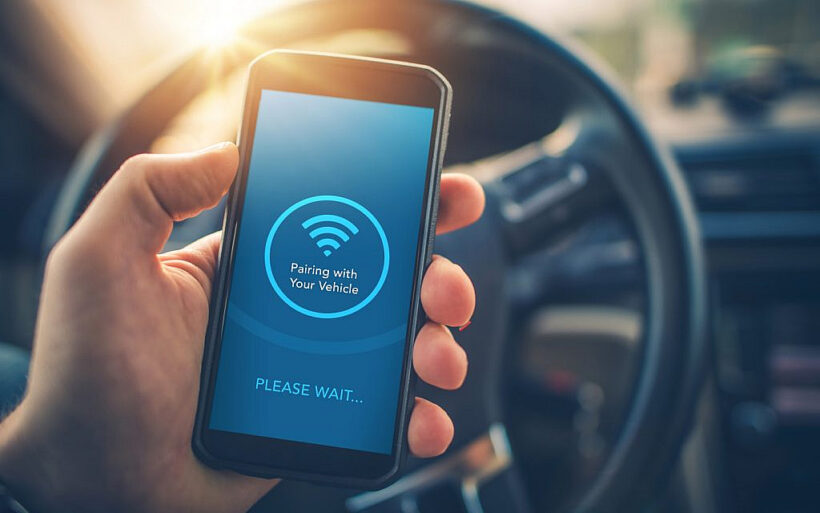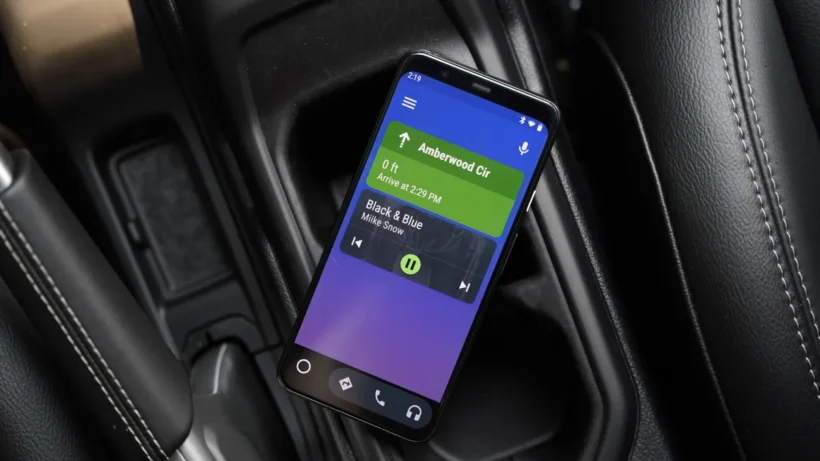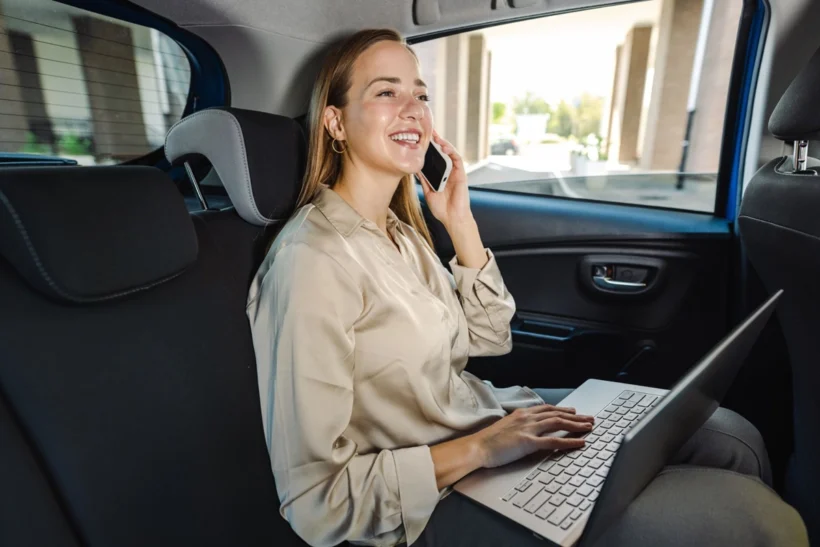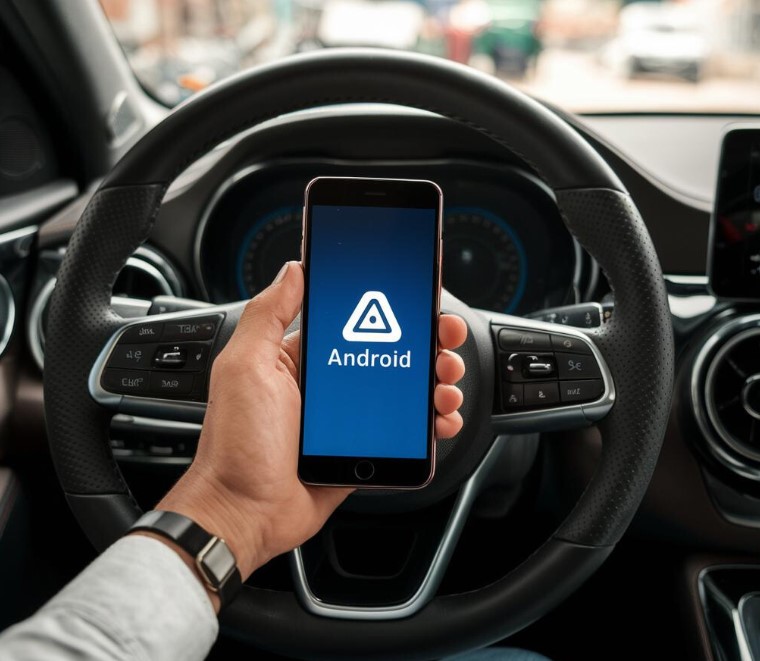In today’s tech-savvy world, connecting our smartphones to our cars has become second nature. Whether it’s for navigation, music, or hands-free calls, the convenience is undeniable. However, this seamless integration comes with its own set of risks that many users overlook. Let’s explore the potential dangers of connecting your Android phone to your car and how you can protect yourself.
It’s Just a Quick Sync, Right?

It’s easy to think that plugging in your phone for a quick sync is harmless. You get to enjoy your favorite playlist, use Google Maps, and even answer calls without taking your hands off the wheel. But behind the scenes, a lot more is happening.
When you connect your Android phone to your car, you grant access to your personal data. This data can include contact lists, messages, call logs, and even app data. For more details on ensuring your data remains secure, visit itallnews.com.
The Data Dilemma
Connecting your Android phone to your car’s system seems like a no-brainer for convenience, but it brings a complex set of data privacy and security challenges:
Personal Information Exposure
When you connect your phone to your car, your vehicle’s infotainment system may store data from your phone. This can include:
- Contacts
- Call logs
- Text messages
- Navigation history
This data can be retained even after you disconnect your phone, posing a significant privacy risk if you ever sell or rent out the car. Imagine a stranger not only accessing your contact list but also seeing your personal messages and call history. This situation isn’t just uncomfortable; it can lead to identity theft or misuse of your personal information, turning a minor oversight into a major security issue.
Data Vulnerability
Cars, like any other electronic devices, are vulnerable to hacking. If your car’s system isn’t secure, a hacker could potentially access sensitive information stored there. This threat extends beyond just reading your messages; hackers could manipulate your car’s systems, potentially endangering your safety. The idea of someone remotely controlling aspects of your vehicle, or accessing your detailed location history, is not just unsettling but potentially dangerous. It’s a reminder that modern cars are complex computers on wheels, and they require the same cybersecurity considerations as any other connected device.
The Malware Menace
In the interconnected world of smartphones and vehicles, the threat of malware looms large, posing a significant risk to both your data and your car’s systems.
Infected Devices
Connecting your Android phone to your car can also expose you to malware risks. If your phone is infected with malware, it could transfer to your car’s system, leading to a cascade of issues. This malware can cause everything from malfunctioning navigation systems to unauthorized data access, compromising your privacy and the car’s functionality. In some cases, malware can spread further, infecting other devices that connect to your car, creating a network of compromised systems.
Fake Apps and Phishing

Another risk comes from fake apps or phishing attempts. When you connect your phone to your car, you might receive prompts to download certain apps or updates. Unsuspecting users might download malicious software, thinking it’s a legitimate app, only to find their personal information being stolen. These fake apps can mimic real ones so closely that even tech-savvy users can be fooled, leading to unauthorized access to their data. Once installed, this software can silently operate in the background, harvesting data or even taking control of your device without your knowledge.
Bluetooth and Wi-Fi Vulnerabilities
Bluetooth and Wi-Fi offer convenience but also open doors to potential security vulnerabilities.
Bluetooth Pairing
Bluetooth is a convenient way to connect your phone to your car, but it has its risks. Bluetooth connections can be intercepted, and hackers can exploit vulnerabilities to access your phone’s data. They can even install malware if the connection isn’t secure.
Wi-Fi Hotspots

Many modern cars come with Wi-Fi capabilities. While this is great for keeping passengers connected, it can also be a security risk. Public Wi-Fi networks, in particular, are breeding grounds for hackers. If your car connects to an insecure network, your data could be at risk.
The Legal Landscape
The intersection of technology and law is becoming more prominent, especially when it comes to the data collected by your car’s systems and the potential legal ramifications.
Data Collection and Privacy Laws
Different countries have varying laws regarding data collection and privacy. In some places, car manufacturers can collect and use data from connected devices. This data can include your driving habits, location, and even biometric information. While this data collection can be used for improving services, it can also be a privacy concern.
Legal Ramifications
In the event of a car accident, data from your phone or the car’s system could be used in legal proceedings. For instance, text messages or call logs could be used to determine if you were distracted while driving. This could have serious legal implications.
How to Protect Yourself
To safeguard your personal information and ensure a secure connection, it’s crucial to take proactive steps when connecting your Android phone to your car.
Limit Data Sharing
Be mindful of the data you share when connecting your phone to your car. Most infotainment systems allow you to select which data to sync. Limit the data to what’s necessary, and avoid syncing sensitive information.
Use Secure Connections
Always use secure connections when connecting your phone to your car. Avoid public Wi-Fi networks and be cautious with Bluetooth connections. Keep your phone’s software and apps updated to protect against vulnerabilities.
Delete Data After Use
If you’re using a rental or shared vehicle, make sure to delete any personal data from the system before returning the car. Most infotainment systems have an option to clear data, so use it.
Install Reliable Security Software
Invest in reliable security software for your phone. This software can help detect and remove malware, protect against phishing attempts, and secure your data.
In Summary
Connecting your Android phone to your car offers numerous conveniences, but it’s important to be aware of the potential risks. By taking simple precautions, such as limiting data sharing and using secure connections, you can enjoy the benefits of a connected car without compromising your privacy and security.

